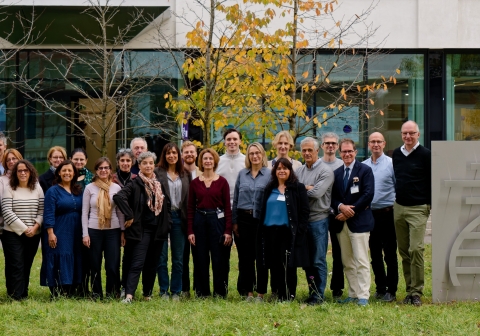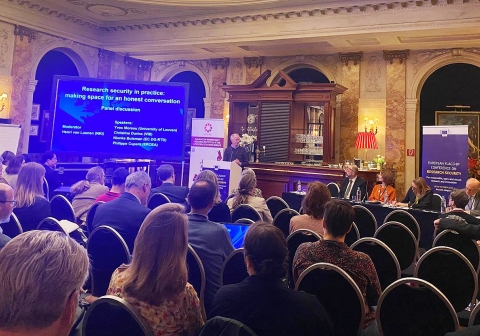European research organisations call for enhanced and transformed early-stage collaborative research in FP10
European research organisations including EU-LIFE issued a joint statement calling on the European Commission, European Parliament and Member States to reaffirm the central role of early-stage collaborative Research & Innovation (R&I) funding within FP10, and to transform it in order to address the excessive complexity, rigid consortium requirements and prescriptive approach of its current structure.
The statement highlights the critical role of early-stage collaboration across disciplines, sectors and countries in the generation of breakthrough knowledge, innovative technologies and resilient ecosystems. It emphasises that this type of research, which operates at low- to mid- Technology or Societal Readiness Levels (TRLs/SRLs), is the critical foundation of Europe’s ability to address global challenges, strengthen its strategic autonomy, and remain competitive in the long term.
“If Europe is to stay competitive and sovereign, we need a sound foundation of early-stage, cross-border collaboration at lower to mid- TRL level that fosters open-ended exploration and strong scientific communities,” said Marta Agostinho, Executive Director of EU-LIFE, “FP10 is the only programme where such collaborations can thrive.”
While supporting the maintenance of early-stage collaborative R&I in FP10 alongside the new European Competitiveness Fund (ECF), the signatories stress the need to ensure that the two instruments are complementary. They warn against a one-size-fits-all approach and call for tailored mechanisms that preserve excellence-driven, open and flexible collaboration within FP10.
At the same time, the organisations urge the EU to address structural weaknesses in Horizon Europe’s Pillar II — notably excessive complexity, rigid consortium requirements and an overly prescriptive focus on short-term outcomes — which risk excluding key contributors such as early-career researchers, SMEs and new actors. They advocate for a more balanced, inclusive and researcher-friendly framework that can unleash the full potential of early-stage collaborative research.
The joint statement is available here: https://eu-life.eu/newsroom/publications/early-stage-collaboration-fp10
The joint statement is currently supported by: EU-LIFE, Coimbra Group, YERUN, ECIU, AURORA, EASSH, EUA, ISE, ALLEA, MCAA, UNICA and ECHO.
Find EU-LIFE's recommendations for FP10 in the papers below:
- The future of European research: 5 key actions for a competitive Europe, https://eu-life.eu/newsroom/publications/future-EU-research-5-actions
- Towards FP10: EU-LIFE reply to High-Level Group Consultation on HE and FP10, https://eu-life.eu/newsroom/publications/reply-high-level-group-he-fp10
- Towards FP10: EU-LIFE’s vision for the European Innovation Council (EIC), https://eu-life.eu/newsroom/publications/vision-EIC-2024
- Towards FP10: EU-LIFE’s vision for Marie Skłodowska-Curie Actions (MSCA), https://eu-life.eu/publications/vision-msca
- Towards FP10: EU-LIFE’s guiding principles for FP10, https://eu-life.eu/newsroom/publications/FP10-principles



